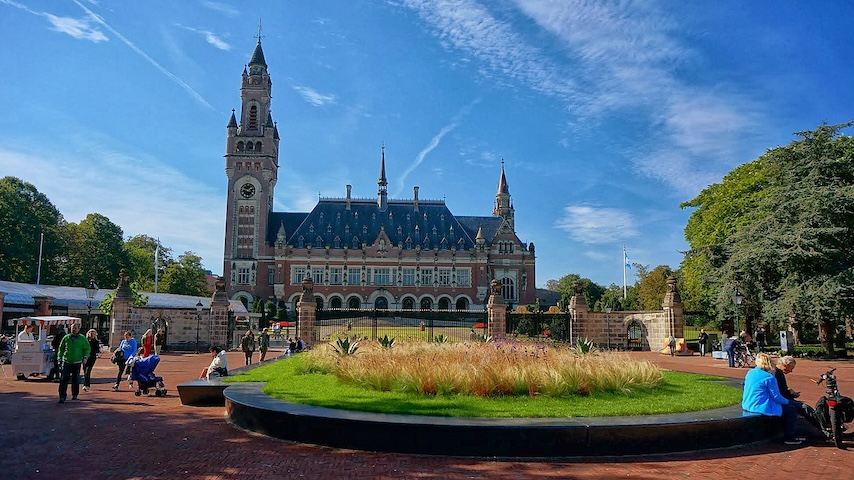Can the U.N.’s Highest Court Do Something About Climate Change?
Photo by Ben Bender/Wikimedia Commons
In a news story more or less designed in a lab to prove Betteridge’s Law of Headlines, the United Nations’ highest court will hear a massive case about global climate change obligations beginning on Monday. The case, initiated by law students in Vanuatu and other small island states but expanded to encompass just about everyone and officially called by the United Nations General Assembly, will essentially examine what obligations governments have to protect the climate and what happens to them if they have failed.
The International Court of Justice will hear arguments from more than 100 countries and NGOs for the next couple of weeks. Everyone from those small island states like Vanuatu and Tuvalu to Saudi Arabia and Iran have asked for room to speak; so have the World Health Organization and OPEC. Importantly, because this is the ICJ and not the U.N.’s other various forums, these are not meant to just be more speeches about the need to do more to fight climate change; they are, supposedly, legal arguments for or against national responsibility on the issue.
The case, which was requested by the General Assembly way back in March 2023, opens just a week after the general catastrophe that was the COP29 U.N. talks in Baku, Azerbaijan. The results of that conference, called “at best the avoidance of a diplomatic disaster,” yielded a worse-than-tepid bump to international climate finance, a promise from the rich countries who caused the crisis to deliver $300 billion per year to the developing world by 2035; the generally agreed upon need is more than $1 trillion, and the new promise barely scratches past inflation over the 2009 pledge of $100 billion.
“It is a matter of survival, and the world’s biggest economies are not taking this crisis seriously,” said Vishal Prasad, of Pacific Islands Students Fighting Climate Change, in a press briefing this weekend. “We need the ICJ to protect the rights of people at the front lines.”
The ICJ case is taking another angle at multilateral action, though it is hard to imagine how the court’s decision — not expected until next summer, most likely — would spur much of anything. There is a chance it could be used by parties inside their own countries looking to recoup losses or hold someone at fault, or just as a cudgel in efforts at policy-making; but generally, ICJ decisions are not binding to the U.N. members.
Before the countries and NGO make their arguments, the judges on the ICJ were briefed about the current scientific assessments of climate change. So they know about the enormous gap between emissions trajectory goals and realities, about the “human and economic trainwreck” behind current national climate ambitions, and hopefully about the potentially devastating debt spirals in which poorer countries faced with repeating and increasing climate-related disasters find themselves.
It’s not a bad thing to get on the record in as many ways as possible just how badly the worst polluters of the last two centuries have screwed things up for everyone else, and to say out loud that they should be legally and financially on the hook. But like much of what happens at the U.N., the smile at the heart of any such decision will quickly demonstrate its lack of teeth.